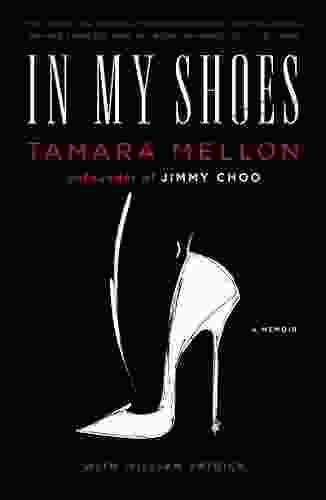Deconstructing the Positive Behavioral Intervention Support Model: Hegemony and Power Relations in Educational Discipline

The Positive Behavioral Intervention Support (PBIS) model is a widely adopted approach to school discipline that emphasizes positive reinforcement and proactive strategies to promote desired behaviors. However, despite its popularity, PBIS has faced criticism for its potential to perpetuate hegemony and social control within educational institutions. This article seeks to deconstruct the PBIS model, examining its underlying power dynamics and the ways in which it may contribute to the maintenance of inequitable structures in schools.
Hegemony, a concept developed by Italian philosopher Antonio Gramsci, refers to the process by which a dominant group or ideology maintains its power by gaining the consent of the subordinate group. In the context of education, hegemony manifests itself in the ways that dominant cultural norms and values are normalized and imposed upon students, often without their conscious awareness.
The PBIS model, with its focus on positive reinforcement and behavior modification techniques, can be seen as a hegemonic tool that promotes the values and norms of the dominant culture. By rewarding students for conforming to these norms, PBIS reinforces the idea that these behaviors are inherently desirable and correct. This can lead to the suppression of other cultural norms and values, potentially marginalizing students who do not conform to the dominant paradigm.
4.5 out of 5
| Language | : | English |
| File size | : | 1120 KB |
| Text-to-Speech | : | Enabled |
| Screen Reader | : | Supported |
| Enhanced typesetting | : | Enabled |
| Word Wise | : | Enabled |
| Print length | : | 130 pages |
The PBIS model is often implemented through a top-down approach, with administrators and school staff holding the primary authority for defining and enforcing desired behaviors. This can create a power imbalance between students and educators, making it difficult for students to voice their concerns or challenge the norms imposed upon them.
Additionally, PBIS often relies on surveillance and data collection to monitor student behavior. This can lead to a sense of mistrust and alienation among students, who may feel that their actions are constantly under scrutiny. The focus on data can also shift the emphasis away from addressing the root causes of behavioral problems, potentially leading to superficial and ineffective interventions.
Critics of PBIS argue that it has the potential to disproportionately impact students of color, students with disabilities, and students from low-income backgrounds. These students may be more likely to be labeled as "problem students" and subjected to more punitive disciplinary measures within the PBIS framework.
For example, a study by the Council of State Governments Justice Center found that students of color were more likely to be suspended or expelled from schools that implemented PBIS. This suggests that the model may not be effectively addressing the underlying factors that contribute to behavioral challenges in these student populations.
To address the concerns raised about hegemony and power relations in the PBIS model, it is essential to deconstruct its underlying assumptions and implement more equitable and inclusive approaches to school discipline. Here are a few suggestions:
1. Center Student Voices: Engage students in the process of developing and implementing behavioral expectations. Allow them to share their perspectives and experiences and create a sense of ownership over their school environment.
2. Address Root Causes of Behavior: Focus on understanding the underlying reasons behind behavioral challenges rather than solely relying on punishment or rewards. Provide support and resources to students who are struggling with academic, social, or emotional issues.
3. Build Relationships and Trust: Foster strong relationships between students, educators, and administrators. Create a supportive and inclusive school climate where students feel valued and respected.
4. Use Restorative Practices: Implement restorative justice practices that emphasize repairing relationships and addressing harm. This can help build a sense of community and promote accountability without resorting to punitive measures.
5. Challenge Deficit Perspectives: Avoid labeling students as "problem students" or viewing them solely through a deficit-based lens. Focus on their strengths and abilities and provide them with opportunities to succeed.
The Positive Behavioral Intervention Support model has the potential to be a valuable tool for promoting positive school behavior. However, it is crucial to critically examine the underlying power dynamics and assumptions of the model to ensure that it is implemented in an equitable and inclusive manner. By deconstructing PBIS and embracing more restorative and student-centered approaches, we can create school environments where all students feel valued, supported, and empowered to succeed.
Alt Attributes for Images:
- Image 1: Students engaging in a restorative circle, fostering a sense of community and accountability.
- Image 2: Educators and students working together to develop and implement behavioral expectations, creating a sense of ownership and collaboration.
- Image 3: Teachers providing individualized support to students, addressing the underlying reasons behind behavioral challenges.
4.5 out of 5
| Language | : | English |
| File size | : | 1120 KB |
| Text-to-Speech | : | Enabled |
| Screen Reader | : | Supported |
| Enhanced typesetting | : | Enabled |
| Word Wise | : | Enabled |
| Print length | : | 130 pages |
Do you want to contribute by writing guest posts on this blog?
Please contact us and send us a resume of previous articles that you have written.
 Top Book
Top Book Novel
Novel Fiction
Fiction Nonfiction
Nonfiction Literature
Literature Paperback
Paperback Hardcover
Hardcover E-book
E-book Audiobook
Audiobook Bestseller
Bestseller Classic
Classic Mystery
Mystery Thriller
Thriller Romance
Romance Fantasy
Fantasy Science Fiction
Science Fiction Biography
Biography Memoir
Memoir Autobiography
Autobiography Poetry
Poetry Drama
Drama Historical Fiction
Historical Fiction Self-help
Self-help Young Adult
Young Adult Childrens Books
Childrens Books Graphic Novel
Graphic Novel Anthology
Anthology Series
Series Encyclopedia
Encyclopedia Reference
Reference Guidebook
Guidebook Textbook
Textbook Workbook
Workbook Journal
Journal Diary
Diary Manuscript
Manuscript Folio
Folio Pulp Fiction
Pulp Fiction Short Stories
Short Stories Fairy Tales
Fairy Tales Fables
Fables Mythology
Mythology Philosophy
Philosophy Religion
Religion Spirituality
Spirituality Essays
Essays Critique
Critique Commentary
Commentary Glossary
Glossary Bibliography
Bibliography Index
Index Table of Contents
Table of Contents Preface
Preface Introduction
Introduction Foreword
Foreword Afterword
Afterword Appendices
Appendices Annotations
Annotations Footnotes
Footnotes Epilogue
Epilogue Prologue
Prologue David Kinch
David Kinch Caleb J Ross
Caleb J Ross Cat Bowser
Cat Bowser Patrick Barnes
Patrick Barnes Nick Thacker
Nick Thacker Camila Hurst
Camila Hurst James Joyce
James Joyce Red Pesca
Red Pesca Lucy Green
Lucy Green Elizabeth Wilder
Elizabeth Wilder Diane Lockward
Diane Lockward Joelle Herr
Joelle Herr Rob Gifford
Rob Gifford Scott Swisher
Scott Swisher Blake Crouch
Blake Crouch Heide Goody
Heide Goody John Louis Haney
John Louis Haney Genevieve Liveley
Genevieve Liveley Rachel Holtzman
Rachel Holtzman Jason Lucas
Jason Lucas
Light bulbAdvertise smarter! Our strategic ad space ensures maximum exposure. Reserve your spot today!

 Hector BlairExplore the Gripping Narrative of Desire Minter: Forsaken Daughter, Reluctant...
Hector BlairExplore the Gripping Narrative of Desire Minter: Forsaken Daughter, Reluctant... Roald DahlFollow ·13k
Roald DahlFollow ·13k Rodney ParkerFollow ·16.9k
Rodney ParkerFollow ·16.9k Ashton ReedFollow ·4k
Ashton ReedFollow ·4k Ryūnosuke AkutagawaFollow ·13.4k
Ryūnosuke AkutagawaFollow ·13.4k John GreenFollow ·19.9k
John GreenFollow ·19.9k John SteinbeckFollow ·7.4k
John SteinbeckFollow ·7.4k Connor MitchellFollow ·18.7k
Connor MitchellFollow ·18.7k Cooper BellFollow ·18k
Cooper BellFollow ·18k

 Eugene Powell
Eugene PowellComplete Guide to Using Yoga With Kids: Benefits, Tips,...
Yoga is an ancient practice that has been...

 Benji Powell
Benji PowellHow to Make $000 Per Week on Craigslist
Are you looking for a way to make extra money...

 Gabriel Garcia Marquez
Gabriel Garcia MarquezGrocery Row Gardening: The Exciting New Permaculture...
Kick-start your gardening journey with the...

 Hayden Mitchell
Hayden MitchellUnveiling the Gripping World of Winterwood: Ben Hood...
In the annals of crime thrillers, the...

 E.M. Forster
E.M. ForsterThe Financial Advisor Guide To Managing and Investing...
As a financial...

 Lee Simmons
Lee SimmonsIn My Shoes Memoir: A Poignant Journey of Resilience,...
In the tapestry of life, adversity often...
4.5 out of 5
| Language | : | English |
| File size | : | 1120 KB |
| Text-to-Speech | : | Enabled |
| Screen Reader | : | Supported |
| Enhanced typesetting | : | Enabled |
| Word Wise | : | Enabled |
| Print length | : | 130 pages |










